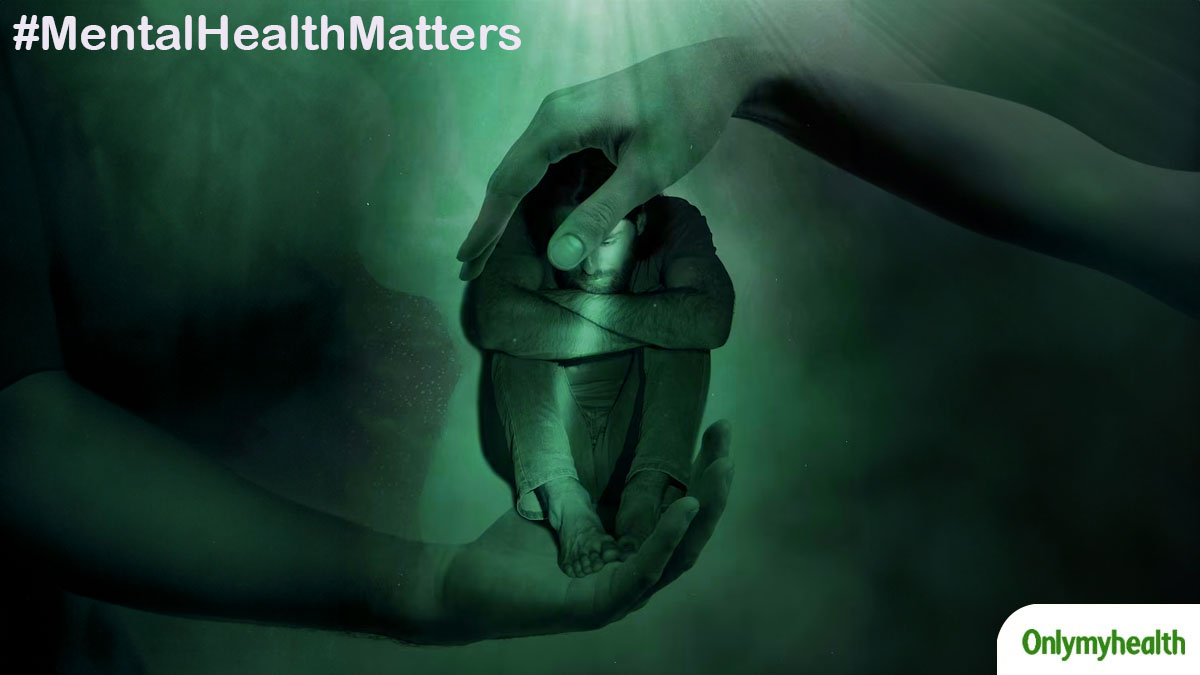
In our society, it is a common observation that men are often less inclined to openly discuss their feelings. Traditional gender roles and societal expectations have influenced men to adhere to the stereotype of being strong, stoic, and unemotional. However, this reluctance to express emotions can have significant consequences on their mental health and overall well-being.
Table of Content:-
In our special campaign, 'Mental Health Matters', we took a deep dive into this issue. We spoke to renowned mental health expert, Damini Grover, Counselling Psychologist, Heal Your Life Coach, Founder - I'M Powered Center for Counseling and Well-being, Delhi, to know more about it.
Cultural Conditioning and Gender Stereotypes
"Men are less likely to talk about their feelings because of how they are brought up in society," said Grover. She added that men are taught that showing emotions is a sign of weakness and they should be strong and tough. "Expressing emotions like anger is seen as acceptable because it is associated with masculinity. However, softer emotions like sadness or feeling low are seen as feminine and not something men should express. This cultural conditioning makes it difficult for men to talk about their feelings and they may feel the need to hide their emotions to fit in with societal expectations," she added.

Fear of Stigma and Judgment
"Expressing emotions can be more challenging for men compared to women. Society tells men that they should be strong, tough, and in control at all times," said Grover. She said that crying or showing pain is often seen as a sign of weakness and this idea is also reinforced in advertisements and other media.
"The society tells us that we should express ourselves differently based on our gender. Unfortunately, this means that men may feel uncomfortable or ashamed when expressing their softer or more vulnerable side," she said.
"This leads to a stigma around men sharing their feelings, which can make it even harder for them to open up," she said. The fear of being perceived as weak or less masculine can lead to a reluctance to seek support or talk about personal struggles. This fear can be particularly potent in environments that prioritise competitiveness and assertiveness, such as the workplace or certain social circles.

Men find it difficult to ask for help because they believe it makes them seem weak or incapable. "They feel the need to handle all their problems on their own because they think that's what it means to be a man," said Grover. They believe they should have everything under control and solve everything independently. "Unfortunately, this mindset can have negative consequences. Often, men wait until it's too late to ask for help because they have already gone through a lot of struggles on their own," added Grover.
Lack of Role Models and Emotional Literacy
"In many instances, men face challenges when attempting to articulate their emotions, often due to societal expectations and limited tools for expression," said Grover. She added that unlike women, who may find solace in shedding tears to convey sadness, disappointment, or even anger, men often lack the necessary starting point or vocabulary to effectively communicate their feelings. Consequently, some men may find themselves disconnected from their emotions altogether.
Outcomes

Men do express their emotions, but often in different ways. "They tend to suppress their feelings, which can result in outbursts of anger Men can also experience depression, leading them to withdraw from social interactions," said Grover. According to Mental Health America, each year, more than six million men experience depression, yet the condition often remains undiagnosed in males.
According to Grover, "Men also experience anxiety and even have suicidal thoughts." The earlier quoted report stated that suicide rates in men is on the increase since 2000 and are 7th leading cause of death among them, accounting for 2.2% of all male deaths in 2011.
Grover added that men may turn to substances, such as alcohol or tobacco as a way to cope. "They may also engage in aggressive sports or high-energy activities that can be an outlet for their emotions, but it doesn't necessarily involve talking about their feelings," she added.
Way Forward

"Unfortunately, there's more focus on how women handle their emotions, leaving men behind. We need to change this narrative and promote the idea that everyone, regardless of gender, should be allowed to express their emotions," said Grover.
"Emotions are like energy—they need to flow and move. It doesn't matter if you're a man, woman, or any other gender. Regardless of our differences, we share a common humanity and experience a wide range of emotions. Finding healthy ways to express them doesn't make you weak; it simply means you're being true to your human nature," she concluded.
Also watch this video
How we keep this article up to date:
We work with experts and keep a close eye on the latest in health and wellness. Whenever there is a new research or helpful information, we update our articles with accurate and useful advice.
Current Version